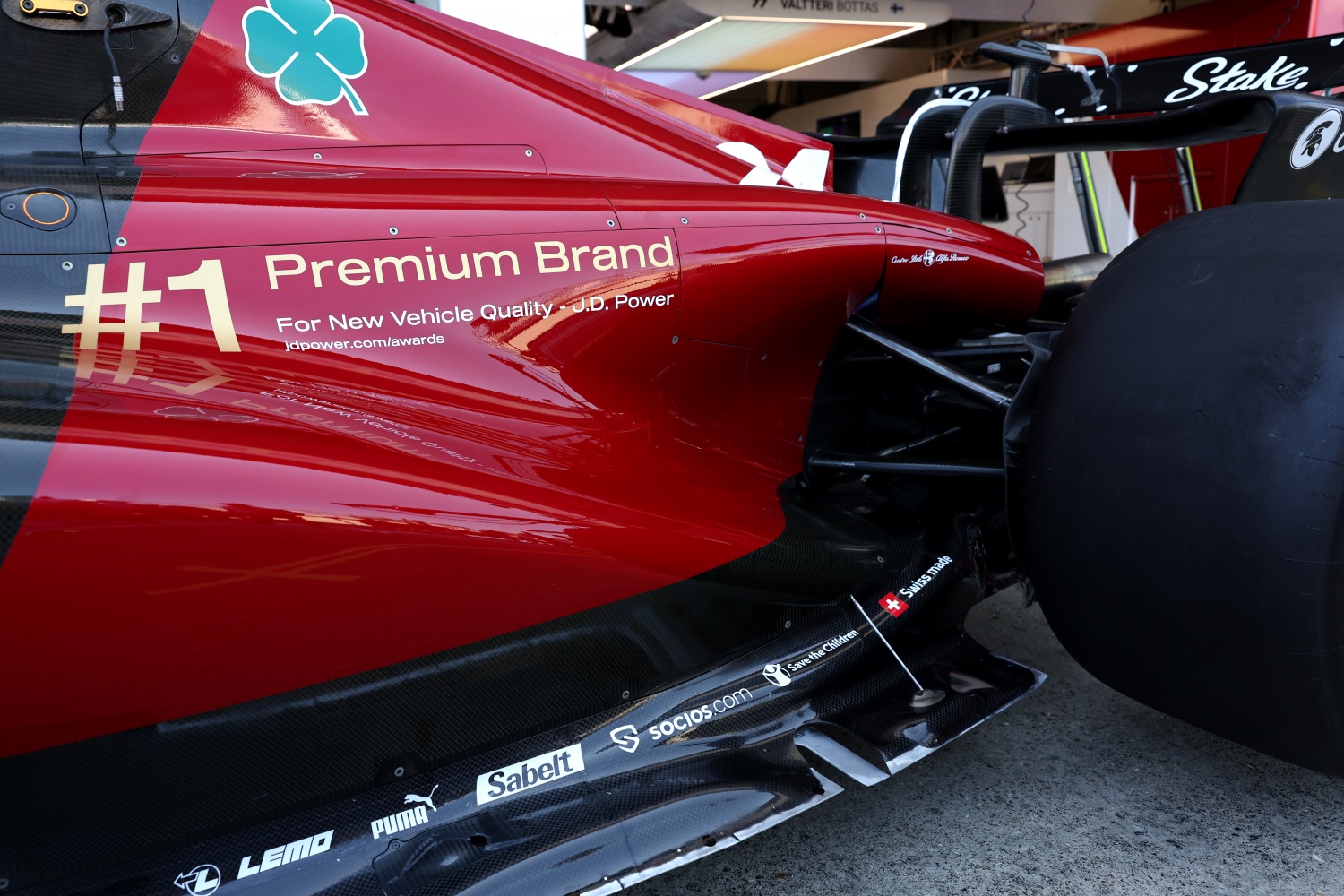Alfa Romeo's F1 racer - the C43 - bore a special sticker on its body at the British Grand Prix this weekend, celebrating the Italian firm's rise up the ranks in the J.D Power U.S Initial Quality Study.
Alfa Romeo rose by 24 positions in the survey compared to last year - the greatest improvement in this year's survey - ranking number one among premium carmakers. The company's Stelvio SUV also scored highest in the premium compact SUV segment.
"The quality of our products is a priority for us," said Alfa Romeo F1 manager Cristiano Fiorio. "Alfa Romeo is acknowledged worldwide as a symbol of sportiness, timeless design and Made in Italy."
"The passion that welcomes us to each and every Grand Prix is the result of a history of sporting successes. That history still casts its spell over all regions of the world; our vehicles are sold with the sole purpose of continuing to excite."
Alfa's British Grand Prix
The Alfa Romeo F1 team, run by the Swiss-based Sauber outfit, endured a difficult British Grand Prix, with Valtteri Bottas' car breaking down at the end of Q1 - the first part of qualifying - before the Finn was excluded post-qualifying due to being unable to provide a fuel sample.
Race day proved disappointing for the team's second driver, Zhou Guanyu, who complained of brake issues - the Chinese driver would eventually finish in 15th place.
Bottas took advantage of retirements from Haas' Kevin Magnussen and Alpine's Esteban Ocon during the race to come home in 12th place - the fifth occasion where both Alfa Romeo drivers would fail to score points.
The team currently sits ninth in the World Constructors' Championship standings, with only the Honda-powered AlphaTauri team behind.
J.D Power
A Michigan-based analytics firm founded in 1968, J.D Power is perhaps best known for its automotive satisfaction surveys, which gather the public's thoughts on nearly every model on the market.
The firm describes itself as "a global leader in consumer insights, advisory services and data and analytics."
This year's Initial Quality Study showed a decline in the overall quality of new cars, with the rise in problems reported as 12 'problems per 100' greater than last year - a lower score indicates higher car quality.
"The automotive industry is facing a wide range of quality problems, a phenomenon not seen in the 37-year history of the IQS," said Frank Hanley, senior director of auto benchmarking at J.D Power.
"The industry is at a major crossroad and the path each manufacturer chooses is paramount for its future."

